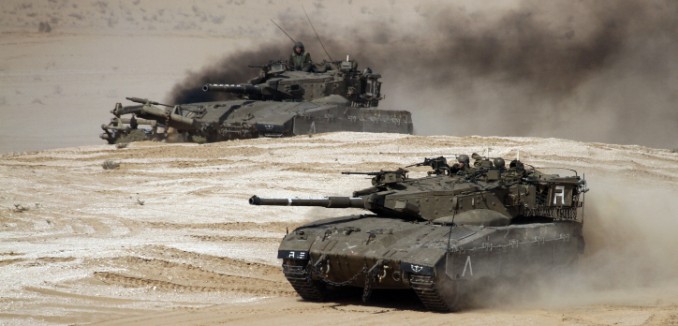Israel’s experience fighting terrorism has made its pavilion at Eurosatory 2016, the world’s largest defense and security exhibition, a popular destination for nations looking to upgrade their anti-terror capabilities, especially in light of major terror attacks in Orlando and Paris, Globes reported Monday.
Thirty Israeli defense and security companies are being featured at the convention in Paris this week, and are drawing attention from many prospective government buyers, especially in Europe.
“Europe is recovering and Israeli industry is feeling this in terms of the volume of orders and the level of interest by many countries in new and advanced weapons systems,” Israel Military Industries president and CEO Avi Felder told Globes. “In many European capitals, the threat of terrorism has changed awareness and sharpened the need for new and appropriate means as part of their preparations for extreme scenarios. First and foremost this is expressed in defense budgets that are getting bigger and bigger.”
Israel’s arms exports were at a ten-year low in the middle of last year, but, apparently in reaction to the terror attacks and the European refugee crisis, European defense purchases from Israel grew to $1.6 billion for 2015. Overall, Israeli defense sales rose by $100 million in 2015, totaling $5.7 billion.
“There is no ceiling to Israeli defense exports to Europe, which is threatened by terror and knows that Israeli companies have appropriate and specially designed systems. And they are turning to us,” Brig. Gen. (ret.) Mishel Ben Baruch, the director of the Israeli Ministry of Defense’s International Defense Cooperation Directorate, told Globes. “Israel is a unique laboratory for developing unique proven defense and security solutions, most of which have already been successfully tried out in the battlefield and Europe knows this.”
Ben Baruch told the industry publication DefenseNews that Israel wasn’t just look to sell hardware, but also to collaborate. All firms at the Eurosatory exhibition “are offering innovative and advanced technologies. … And it’s not just a matter of selling. We are certainly open to the type of cooperation that increasingly demands joint production and a transfer of certain knowledge.”
[Photo: Ofer Zidon / FLASH90 ]




